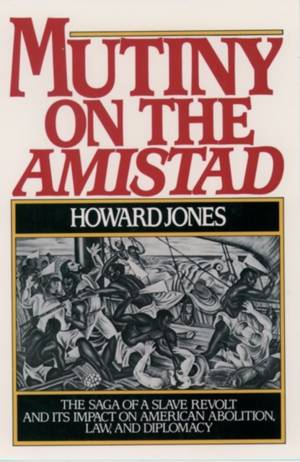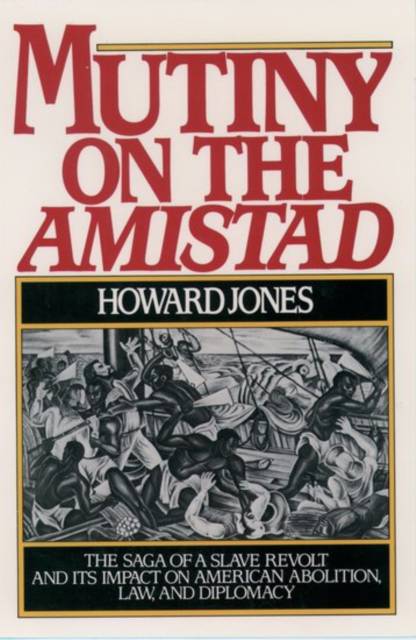
Door een staking bij bpost kan je online bestelling op dit moment iets langer onderweg zijn dan voorzien. Dringend iets nodig? Onze winkels ontvangen jou met open armen!
- Afhalen na 1 uur in een winkel met voorraad
- Gratis thuislevering in België vanaf € 30
- Ruim aanbod met 7 miljoen producten
Door een staking bij bpost kan je online bestelling op dit moment iets langer onderweg zijn dan voorzien. Dringend iets nodig? Onze winkels ontvangen jou met open armen!
- Afhalen na 1 uur in een winkel met voorraad
- Gratis thuislevering in België vanaf € 30
- Ruim aanbod met 7 miljoen producten
Zoeken
Mutiny on the Amistad
The Saga of a Slave Revolt and its Impact on American Abolition, Law, and Diplomacy
Howard Jones
Paperback | Engels
€ 75,95
+ 151 punten
Omschrijving
This volume presents the first full-scale treatment of the only instance in history where African blacks, seized by slave dealers, won their freedom and returned home. Jones describes how, in 1839, Joseph Cinqué led a revolt on the Spanish slave ship, the Amistad, in the Caribbean. The seizure of the ship by an American naval vessel near Montauk, Long Island, the arrest of the Africans in Connecticut, and the Spanish protest against the violation of their property rights created an international controversy.
The Amistad affair united Lewis Tappan and other abolitionists who put the "law of nature" on trial in the United States by their refusal to accept a legal system that claimed to dispense justice while permitting artificial distinctions based on race or color. The mutiny resulted in a trial before the U.S. Supreme Court that pitted former President John Quincy Adams against the federal government. Jones vividly recaptures this compelling drama--the most famous slavery case before Dred Scott--that climaxed in the court's ruling to free the captives and allow them to return to Africa.
The Amistad affair united Lewis Tappan and other abolitionists who put the "law of nature" on trial in the United States by their refusal to accept a legal system that claimed to dispense justice while permitting artificial distinctions based on race or color. The mutiny resulted in a trial before the U.S. Supreme Court that pitted former President John Quincy Adams against the federal government. Jones vividly recaptures this compelling drama--the most famous slavery case before Dred Scott--that climaxed in the court's ruling to free the captives and allow them to return to Africa.
Specificaties
Betrokkenen
- Auteur(s):
- Uitgeverij:
Inhoud
- Aantal bladzijden:
- 296
- Taal:
- Engels
Eigenschappen
- Productcode (EAN):
- 9780195038293
- Verschijningsdatum:
- 20/11/1997
- Uitvoering:
- Paperback
- Formaat:
- Trade paperback (VS)
- Afmetingen:
- 139 mm x 219 mm
- Gewicht:
- 381 g

Alleen bij Standaard Boekhandel
+ 151 punten op je klantenkaart van Standaard Boekhandel
Beoordelingen
We publiceren alleen reviews die voldoen aan de voorwaarden voor reviews. Bekijk onze voorwaarden voor reviews.











